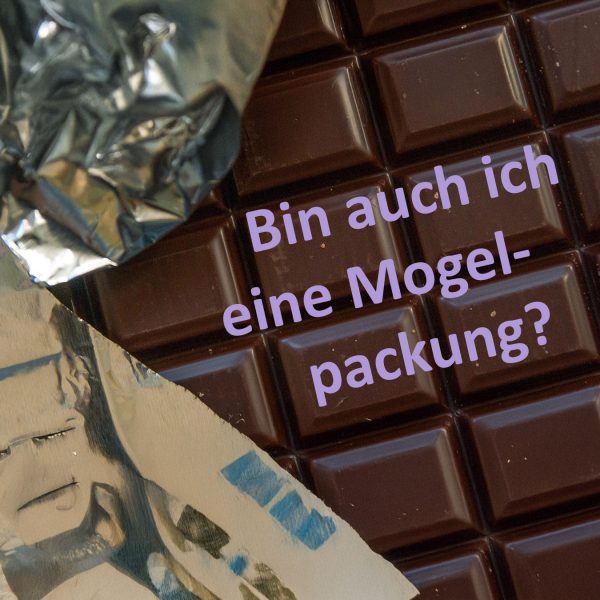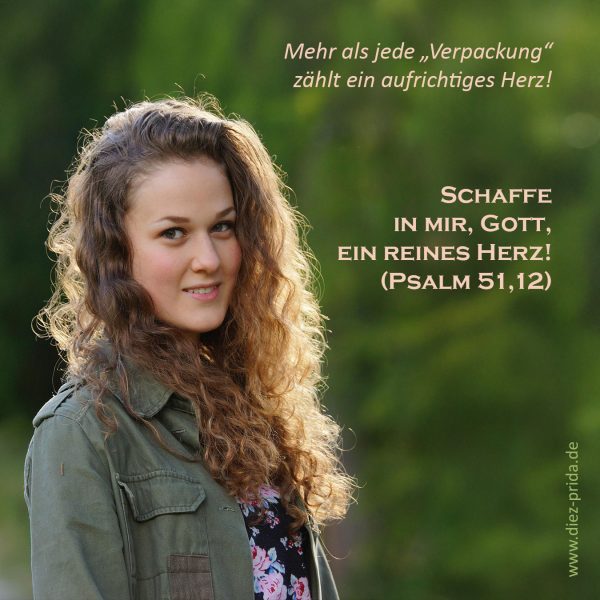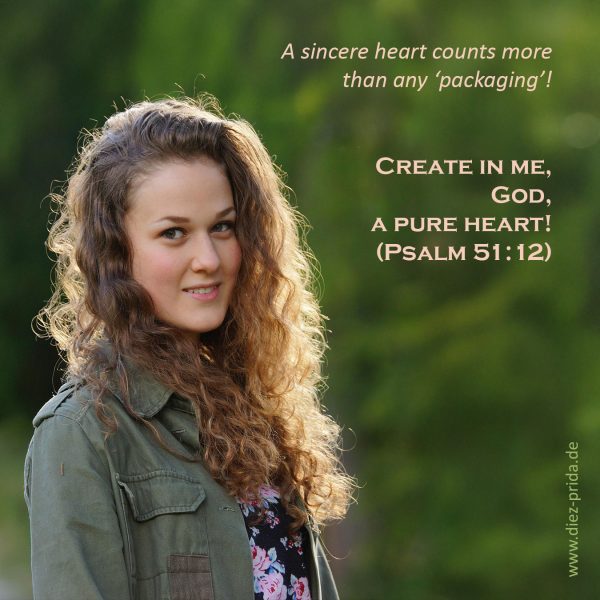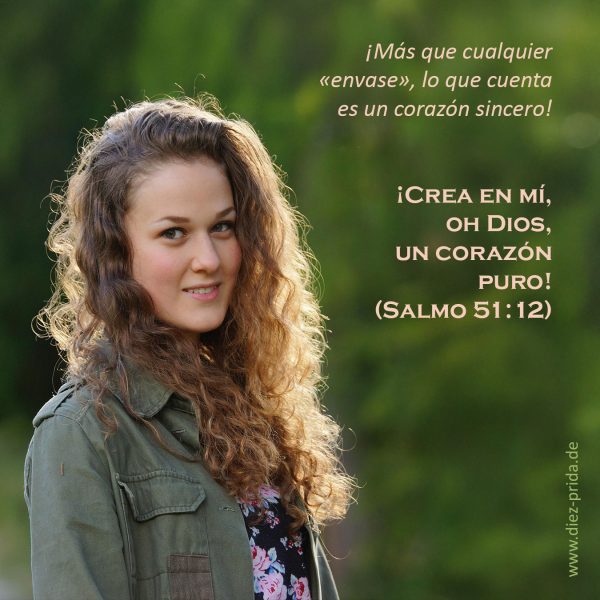Neulich war die Empörung groß: Der Negativpreis „Goldener Windbeutel“ von Foodwatch ging in diesem Jahr an Milka. Die neue Milka-Alpenmilch-Schokolade sieht aus wie immer – doch beim genaueren Hinsehen: weniger drin, teurer geworden. Eine klassische Mogelpackung. Wir fühlen uns betrogen, weil der äußere Schein mehr verspricht, als am Ende wirklich drin ist.

Hand aufs Herz: Sind wir im Alltag nicht manchmal auch genau so? Lächeln, obwohl wir gerade innerlich zerbrechen. Tun selbstsicher, obwohl wir zweifeln. Machen auf stark, obwohl wir schwach sind. Die Social Media helfen uns dabei – perfekt inszeniertes Leben, Hochglanzfassaden mit wenig Substanz dahinter.
Auch im Blick auf Gott gibt es diesen Impuls: So tun, als wären wir besser, als wir sind. Vielleicht in der Hoffnung, dass er dann mehr von uns hält. Doch die Bibel sagt: „Der Mensch sieht, was vor Augen ist, der Herr aber sieht das Herz an“ (1. Samuel 16,7). Gott kennt unser Innenleben – und liebt uns trotzdem. Vielleicht sogar gerade deswegen.
Vielleicht ist der erste Schritt zur Ehrlichkeit, sich selbst einzugestehen: Ich bin nicht perfekt. Aber ich bin echt. Das zählt mehr als jede Verpackung. Wenn dazu die Gewissheit kommt: „Ich werde so geliebt, wie ich bin“, dann ist das nicht zu toppen!
Am I a Deceptive Package Too?
There was quite an uproar recently: This year, the negative award “Golden Windbag” from Foodwatch went to Milka. The new Milka Alpine Milk Chocolate looks the same as always—but on closer inspection: less content, higher price. A classic case of deceptive packaging. We feel cheated because the outer appearance promises more than what’s actually inside.
Hand on heart: Aren’t we sometimes the same in everyday life? Smiling, even though we’re breaking inside. Acting confident, even when we’re full of doubt. Pretending to be strong, though we feel weak. Social media helps us with that—perfectly staged lives, shiny facades with little behind them.
We even tend to do the same with God: trying to appear better than we really are. Maybe hoping that He’ll think more of us that way. But the Bible says: “People look at the outward appearance, but the Lord looks at what is in the heart.” (1 Samuel 16:7). God sees what’s going on inside us—and still loves us. Maybe even because of that.
Maybe the first step toward honesty is admitting to ourselves: I’m not perfect. But I’m real. And that matters more than any packaging. And if we add to that the certainty: *“I’m loved just the way I am,”* then nothing can beat that.
¿Soy yo también un paquete engañoso?
Hace poco hubo una gran indignación: Este año, el premio negativo “Viento Dorado” de Foodwatch fue para Milka. El nuevo chocolate Milka con leche alpina se ve igual que siempre, pero al mirarlo más de cerca: contiene menos y cuesta más. Un caso clásico de empaque engañoso. Nos sentimos engañados porque la apariencia promete más de lo que realmente hay dentro.
Seamos honestos: ¿No hacemos a veces lo mismo en la vida diaria? Sonreímos aunque por dentro estemos rotos. Aparentamos seguridad, aunque tengamos dudas. Mostramos fortaleza, aunque nos sintamos débiles. Las redes sociales nos ayudan con eso: vidas perfectamente escenificadas, fachadas brillantes con poca sustancia detrás.
Incluso ante Dios sentimos esa tentación: aparentar ser mejores de lo que realmente somos. Tal vez con la esperanza de que así nos valore más. Pero la Biblia dice: “El hombre se fija en las apariencias, pero el Señor se fija en el corazón” (1 Samuel 16:7). Dios conoce nuestro interior, y a pesar de ello nos ama. Tal vez incluso precisamente por eso.
Quizás el primer paso hacia la honestidad es reconocer: No soy perfecto. Pero soy auténtico. Y eso vale más que cualquier envoltorio. Y si a eso se suma la certeza: “Soy amado tal como soy”, entonces eso es insuperable.




